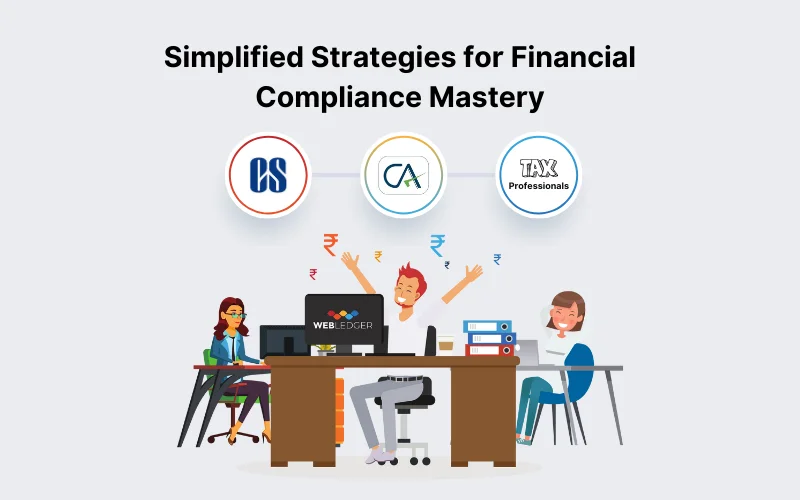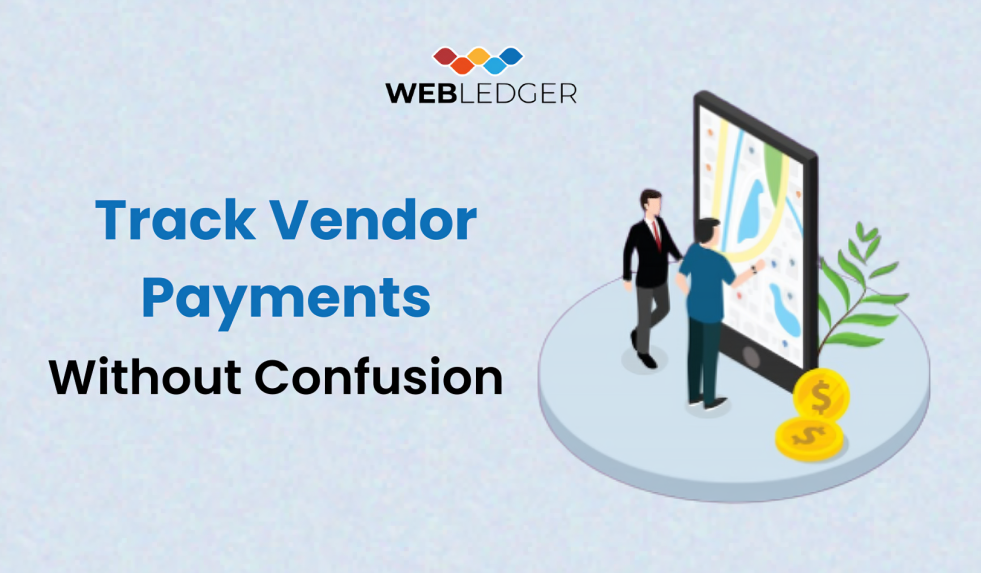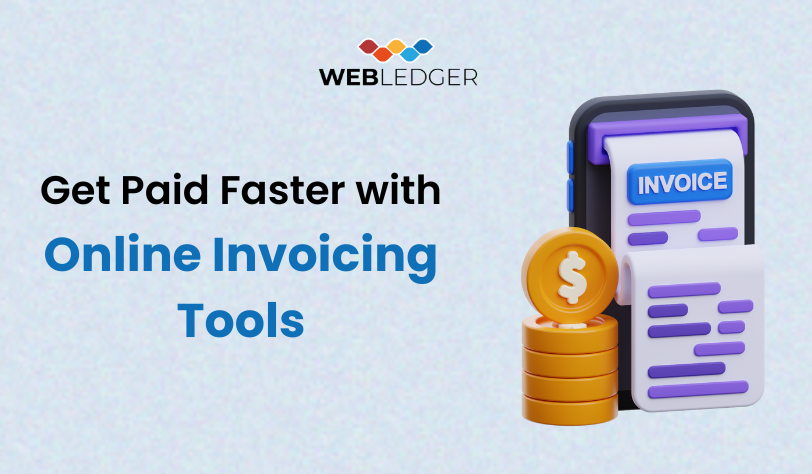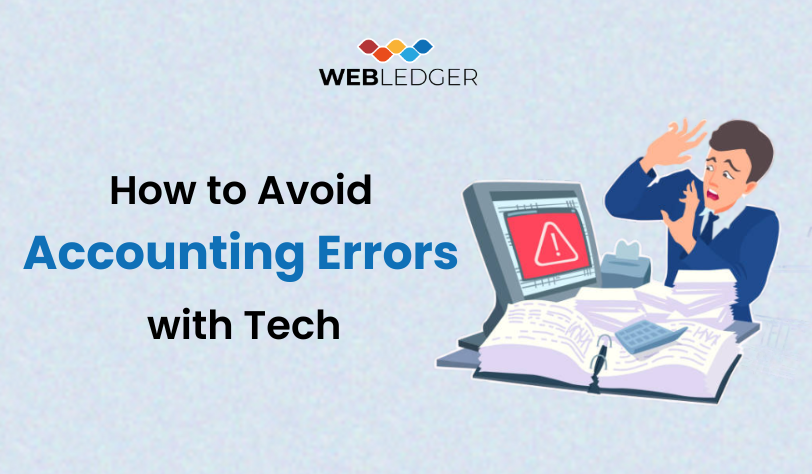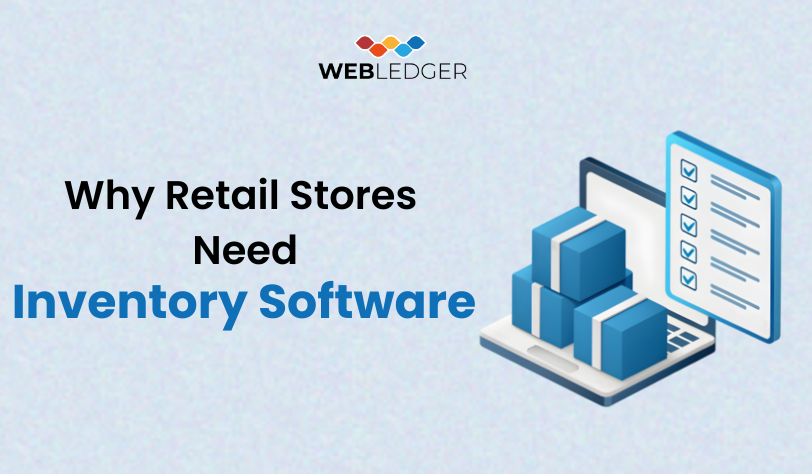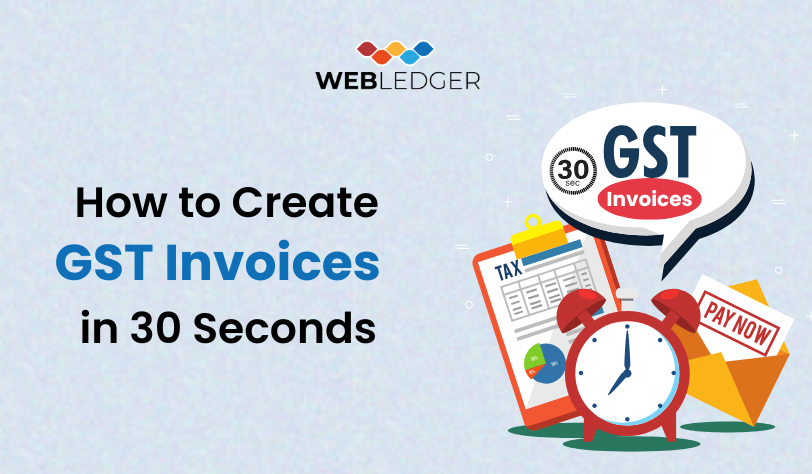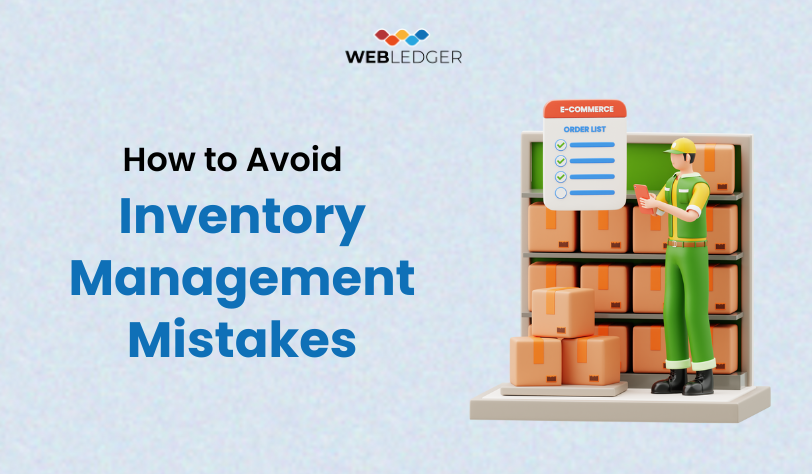Tax compliance is an essential aspect that ensures the smooth operation of society. Tax compliance involves a way of following the country’s taxation laws and regulations, this includes accurate tax deductions, income reporting, and timely payments of taxes. While this process seems overwhelming, getting into the basics can help to understand the process of financial compliance better.
Abiding by the various tax obligations serves as the core of any country’s economy. It helps the government to cater to various citizen needs such as healthcare, education, infrastructure, etc. If one fails to comply with these regulations, it may result in financial tax penalties or depreciation in the societal framework.
A Deep Dive into Current Financial Compliance Frameworks
The use of compliance technology has revolutionised the system of businesses by introducing accuracy, efficiency, and real-time insights to match global society standards. Let us take a deep dive into the current compliance trends that are crucial for businesses and individuals, today.
Use of AI and Machine Learning
Artificial Intelligence and Machine Learning are two of the most impactful technologies that are reshaping the compliance game into a proactive one. AI and Machine Learning can help with processing huge data amounts at fast speeds to expose risks and anomalies. This helps customers gain foresight into the system to avoid any potential issues.
Use of Blockchain Technology
The association of blockchain technology with the dealings of compliance, transparency, and security in the transactional sphere has brought about high levels of integrity and trust in the process of compliance tax filing software.
Solutions for Cloud-Based Compliance
The introduction of cloud-based compliance solutions has greatly impacted compliance technology. With solutions that offer flexible, scalable, and accessible infrastructure, the process of compliance has been made easier and more rigorous than the traditional systems.
Strategies for Efficiency and Maximum Returns
You must have a strong tax-management approach in place to maximise your returns while minimising your taxes. The approaches below will help with the same:
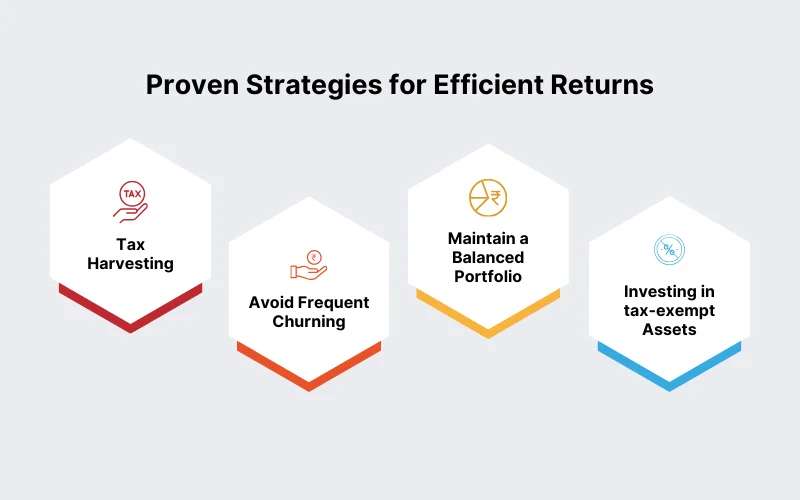
Tax Harvesting
Tax Harvesting is a strategy used to cut down taxes by offsetting the capital gains with capital losses. In this method, you need to sell off investments whose value has declined to offset your gains from other investments, which helps in lowering your overall taxable income.
Avoid Frequent Churning
If you avoid frequently buying and selling stocks within a shorter period and maintain them for a longer period, you can maximise after-tax returns by reducing the frequency of transactions. This helps you minimise tax liability and allows your investments to compound over time.
Maintain a Balanced Portfolio
By properly distributing your assets across multiple asset classes, a balanced portfolio can help you avoid taxes and boost returns. You might possibly benefit from differing tax arrangements for different forms of income by diversifying your assets into a mix of shares, bonds, and other instruments.
Investing in tax-exempt Assets
You can invest in tax-saving options to opt for potentially high returns if your risk profile allows it. Instead of saving through fixed deposits, you can invest in mutual funds or ELSS. However, if you want to avoid higher risks, you can invest in the National Pension Scheme, Public Provident Fund, or the Employee’s Provident Fund, which allows exemptions under Section 80C of the Tax Act.
Staying Ahead in Financial Compliance with WebLedger
Good financial compliance necessitates careful planning, robust internal controls, efficient risk assessment, and conformity to audit processes. You must take care of your business to always strive for growth. Create a risk evaluation framework with an emphasis on the points mentioned above with WebLedger and determine the best combination of people, business controls, and technology to acquire a complete picture of existing tax risks.
To define and carry out proper tax policies, particularly when resolving tax disputes, you need an efficient tax advisor, and WebLedger is the best solution to all your tax compliance needs! Your compliance issues can be easily managed using WebLedger’s Cloud Based Accounting Software and Integrated Compliance Management Software, which gives you a fresh viewpoint on tax compliance!
Conclusion
Both the public as well as tax experts should be educated enough to perpetuate an equitable and operational taxation structure. With the help of simplifying tax regulations, leveraging modern technology, and enhancing collaborative efforts, WebLedger can ensure that both individuals and businesses cater to their tax responsibilities. Alongside this, Webledger pays enough attention to the processing of CAs dealing with financial reporting, auditing, and taxation. Therefore, knowing the effective methods needed to make both the public and tax professionals aware of the complexities of tax compliance is very important.
